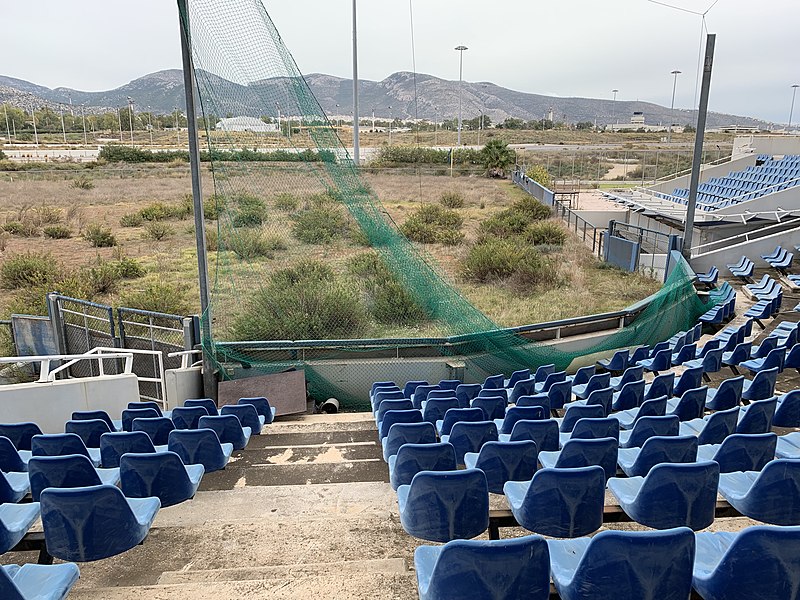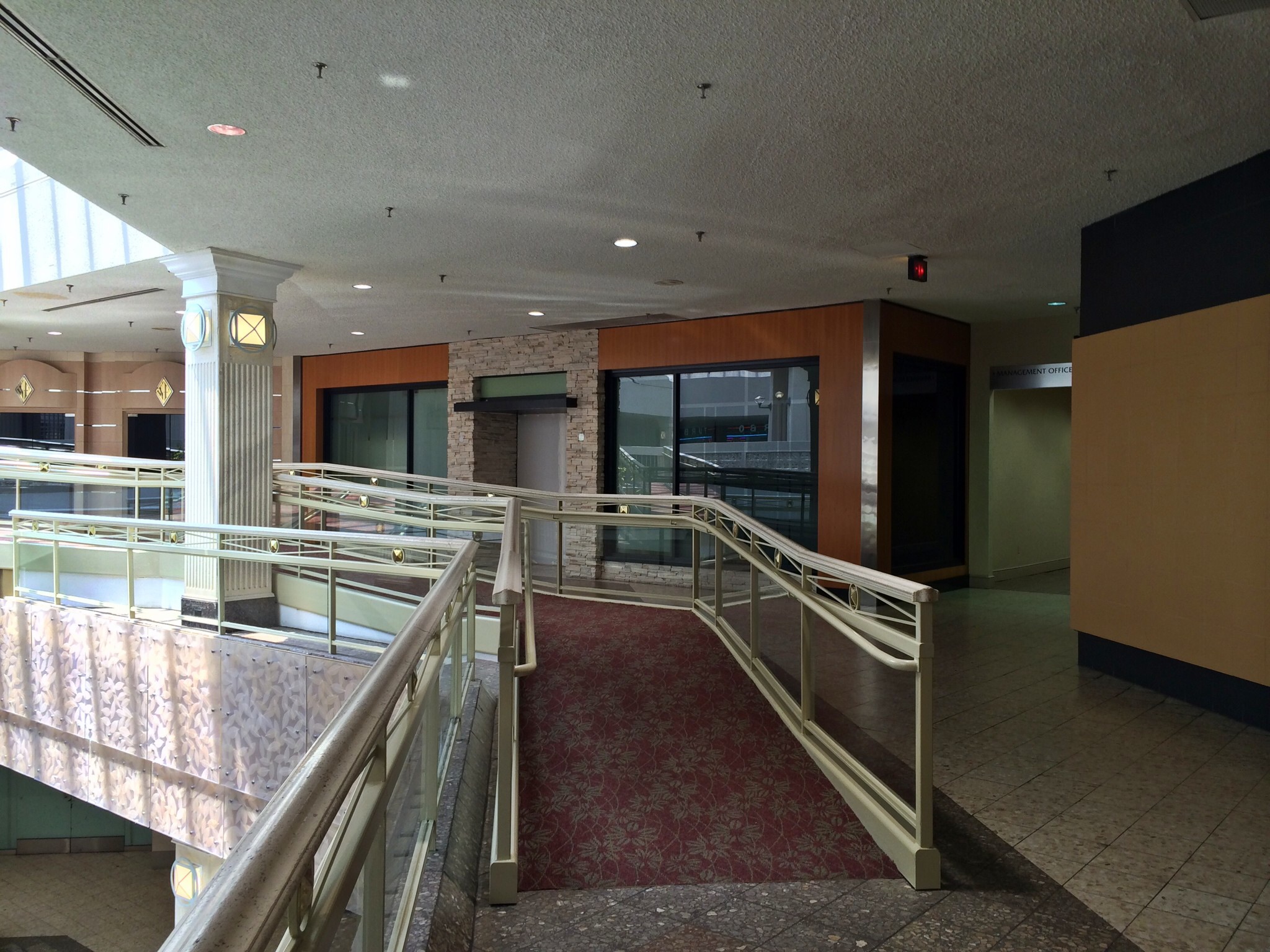White elephant
The abandoned Olympic Softball Stadium, built for the 2004 games in Athens. (Photo taken in November 2018.)
'White elephant' is a term typically associated with something that is very expensive but not useful and which cannot be easily disposed of. It originates from a tradition in Southeast Asia in which monarchs kept white elephants that could not be used for practical tasks due to their sacred nature.
The term white elephant became popular during the 1800s in Western society. It was applied to possessions that were expensive but did not serve the purpose for which they were purchased.
In modern times, it is often used to describe buildings or building projects that are extremely expensive both to undertake and maintain, and that may not achieve their original intent. It can also refer to large real estate developments that are no longer profitable.
White Flint Mall, located in the wealthy suburbs of Washington, DC, opened in 1977. As retail habits changed, stores within the mall closed and abandoned the property, leaving it mostly vacant. Demolition of the 850,000-square-foot (79,000 m2) structure began in 2015, and the last remaining tenant, Lord & Taylor closed on 2 August 2020.
Former Olympic parks are commonly described as white elephants, as are other sports facilities, defunct retail outlets or large industrial or manufacturing sites. Some infrastructure projects eventually turn into white elephants if public demand is low or the structure becomes obsolete by the time the project is completed.
The 'Unusual buildings' article includes examples of weird and wonderful projects - some of which might literally be considered white elephants

|
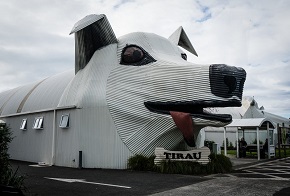
|
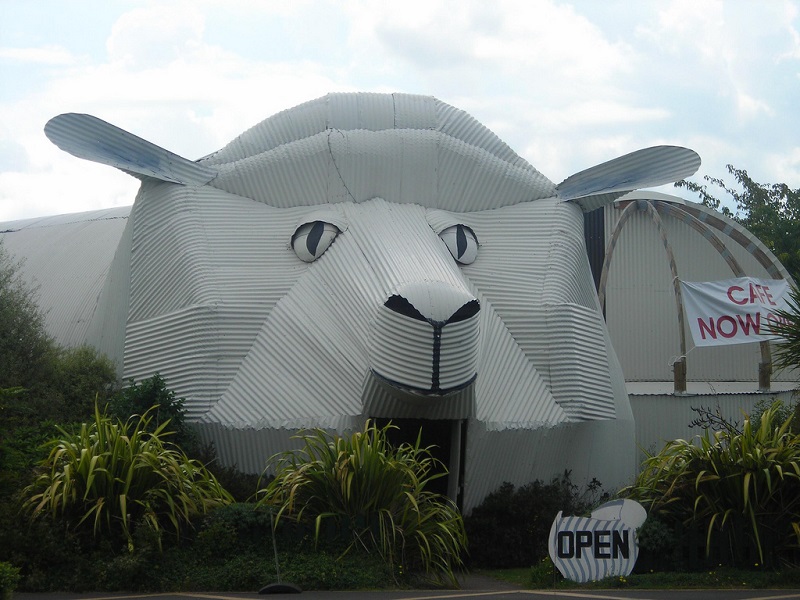
|
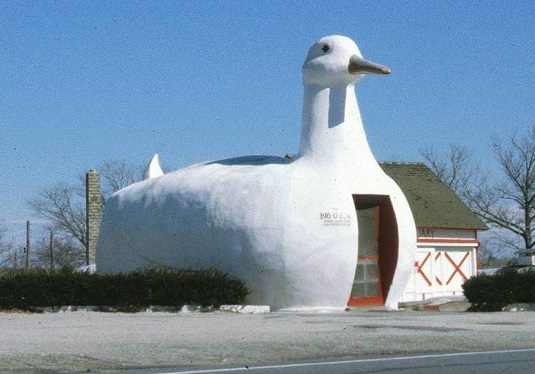
|
[edit] Related articles on Designing Buildings Wiki
Featured articles and news
A case study and a warning to would-be developers
Creating four dwellings... after half a century of doing this job, why, oh why, is it so difficult?
Reform of the fire engineering profession
Fire Engineers Advisory Panel: Authoritative Statement, reactions and next steps.
Restoration and renewal of the Palace of Westminster
A complex project of cultural significance from full decant to EMI, opportunities and a potential a way forward.
Apprenticeships and the responsibility we share
Perspectives from the CIOB President as National Apprentice Week comes to a close.
The first line of defence against rain, wind and snow.
Building Safety recap January, 2026
What we missed at the end of last year, and at the start of this...
National Apprenticeship Week 2026, 9-15 Feb
Shining a light on the positive impacts for businesses, their apprentices and the wider economy alike.
Applications and benefits of acoustic flooring
From commercial to retail.
From solid to sprung and ribbed to raised.
Strengthening industry collaboration in Hong Kong
Hong Kong Institute of Construction and The Chartered Institute of Building sign Memorandum of Understanding.
A detailed description from the experts at Cornish Lime.
IHBC planning for growth with corporate plan development
Grow with the Institute by volunteering and CP25 consultation.
Connecting ambition and action for designers and specifiers.
Electrical skills gap deepens as apprenticeship starts fall despite surging demand says ECA.
Built environment bodies deepen joint action on EDI
B.E.Inclusive initiative agree next phase of joint equity, diversity and inclusion (EDI) action plan.
Recognising culture as key to sustainable economic growth
Creative UK Provocation paper: Culture as Growth Infrastructure.






